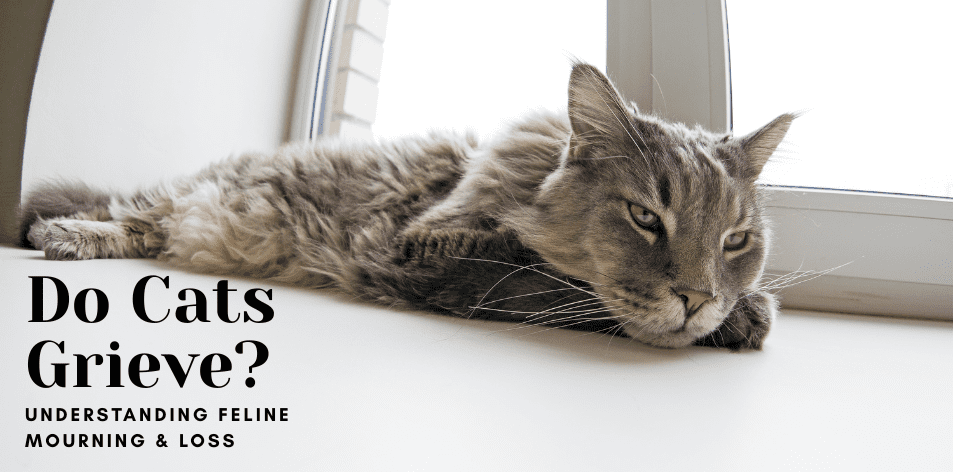A sensitive Look At How Cats Process Loss—Whether Of A Human, Another Pet, Or A Routine—& How To Support Them
Do Cats Experience Grief?
When we think of grief, our minds often go straight to human emotion. But cats—despite their reputation for independence—are sensitive, deeply intuitive creatures capable of forming strong emotional bonds. Whether it’s the loss of a fellow feline, a beloved human companion, or even a familiar daily routine, cats can and do grieve.
Grief in cats doesn’t look quite the same as it does in humans, but the signs are there if you know what to look for. Just like us, they may struggle with feelings of confusion, sadness, and even depression.
Signs of Feline Grief
Cats express grief in subtle, sometimes surprising ways. Common signs include:
* Changes in grooming – over-grooming due to stress or neglecting grooming altogether.
These behaviours often mirror depression in humans and are a cat’s way of coping with emotional pain.
Understanding Their Bond
Cats build attachments not just to their humans, but to fellow pets and their environment. The scent, presence, and shared routine of a companion—whether animal or human—offer them a sense of comfort and security. The sudden absence of any of these can leave them feeling anxious, lost, and distressed.
Even the loss of routine, such as a child going off to school or a family moving home, can trigger emotional upheaval. Cats thrive on familiarity, and any disruption can cause them to grieve.
How to Support a Grieving Cat
While you can’t explain loss to a cat with words, there are ways to offer comfort and reassurance during this delicate time:
* Consider a new companion—carefully – only when your cat seems ready, and even then, introduce gradually.
If symptoms persist for more than a few weeks or worsen, consult a vet. Grief can sometimes mask underlying medical conditions.
Grief Has No Timeline
Just like with humans, each cat grieves in its own way and at its own pace. Some recover in days, others may take weeks or longer. Recognising that their feelings are real is the first step in helping them heal.
By offering patience, love, and gentle support, we can honour our feline companions’ emotional world—and remind them that they are not alone, even in loss.

